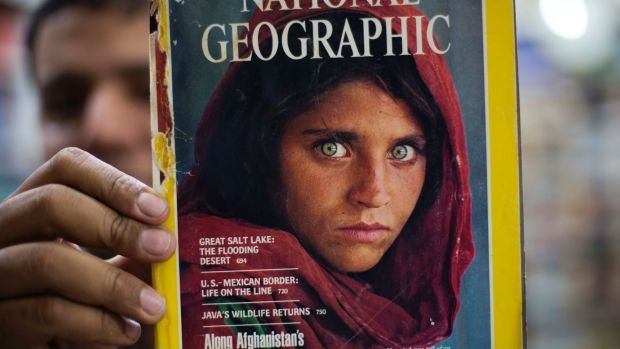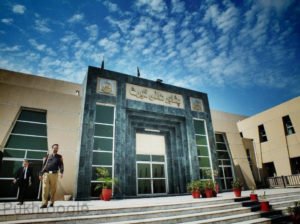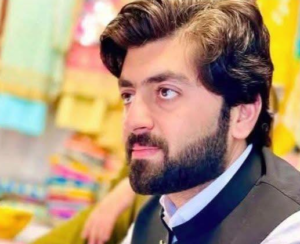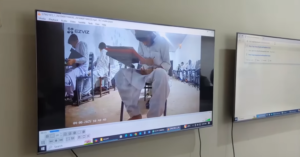Pakistan was recently facing a PR nightmare when Sharbat Gula – the once famous National Geographic Afghan girl – was deported to her native Afghanistan. Gula was accused of forgery, living in Pakistan using fake identity, and thus was not only detained, but was later sent back to Afghanistan.
Gula first gained international prominence in 1984 as an Afghan refugee girl, after Steve McCurry’s photograph of her – with striking and unique green eyes, was published on the cover of National Geographic. Her portrait, as National Geographic claims, became a symbol for refugees all over the world. She then resurfaced in 2014, but accusations of forging her identity documents sent her back into hiding.
This incident made Pakistan a centre of international media attention, and yet again, for all the wrong reasons. The western media cried foul over the apparent “injustice” with Sharbat Gula and her family, yet there was rarely a mention of the illegitimacy” of Gula’s stay in Pakistan.
What the western media also ignored was that most Afghan refugees returning home are facing financial and residential struggles. Whereas, Gula not only visited the Presidential Palace and had a one on one meeting with President Ashraf Ghani, but was also fortunate to receive a furnished apartment from the Afghan government.
Even though this seemed more like a PR exercise by Kabul, none of the media outlets questioned Ghani and his government over the adverse circumstances faced by the rest of the refugees. Afghan media’s reaction to this story was nothing short of displaying Pakistan in poor light internationally, without acknowledging that hundreds of thousands of Afghan families are not only legally based in Pakistan, but also earn their livelihoods.
Soon after Gula landed in Afghanistan, the narrative among the general Afghan population and the Afghan media was that of “Gula treated with disgrace in Pakistan”. Yet, many Afghans were unaware that both the provincial government of Khyber Pakhtunkhwa, and federal government in Islamabad agreed to help Gula and challenged the court’s decision against her deportation. Also, the narrative in Afghanistan also excluded the fact that many Afghans, holding legitimate proof of ID, are living in Pakistan without facing the threat of deportation.
Gula’s story was also another case of “larger than life” storylines in the western media about the misery of someone only when the needed them. Similar examples have been obserbed in cases of Alan (reported as Aylan) Kurdi, whose dead body washed up on a beach, and Omran, sitting mortified in an ambulance. Both these pictures, and the subsequent stories, were picked only because they generated some sort of a social media buzz. Otherwise, stories concerning the Middle Eastern refugees mostly focused on “security threats for the West”. Gula’s media coverage also turned into a media trial against Pakistan, and not of the plight Afghan refugees face due to the ongoing war in Afghanistan post 9/11.
Various human rights groups joined the chorus with the western media against the “grave” injustice” committed by the Pakistani authorities against Gula. Champa Patel, Director South Asia of Amnesty International, voiced her discontent by arguing that Gula’s deportation would tarnish Pakistan’s status of a generous host. Yet, her statement disregards over two decades of efforts that Pakistan has put in to accommodate a fair share of 3 million Afghan refugees. A single case, based on media profile and hype, tarnishing a country’s image sounds less than rational.
It would also be unfair to criticise Gula in this whole episode as her only aim was to survive as a widow, while raising her four children. Yet, she committed a procedural mistake by not availing the first Afghan refugee census, conducted in 2006, which could have enabled her to stay in Pakistan legally. At the end of the day, her fame contributed to her demise, as the more media coverage she received, the interior ministry officials were increasingly pressured to act accordingly.
Yes, Pakistan might have created an exception for Sharbat Gula considering her fame and recognition, along with the pressures from human rights groups. Yes, Gula’s case demanded more compassion than reason. And yes, apparent mishandling of Gula’s case might have brought shame to Pakistan in the western media circles. But the story, which gained global attention, should also generate debates on how western media picks and chooses people, groups, and topics according to their need and appetite, and ignore their miseries when the stories might not contain “buzzworthy” appeal.
First seen on Farooq Yousaf’s blog
PhD (Politics) Candidate – Writer – Researcher







